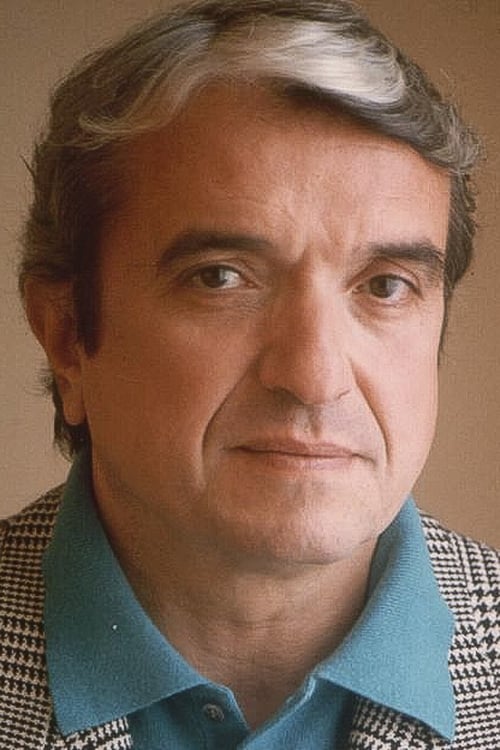
Ruggero Raimondi
Birth : 1941-10-03, Bologna, Emilia-Romagna, Italy
History
Ruggero Raimondi (born 3 October 1941) is an Italian bass-baritone opera singer who has also appeared in motion pictures.
Ruggero Raimondi was born in Bologna, Italy, during World War II. His voice matured early into its adult timbre, and at the age of 15, he auditioned for conductor Francesco Molinari-Pradelli, who encouraged him to pursue an operatic career. He began vocal studies with Ettore Campogalliani, and was accepted at age 16 as a student at the Giuseppe Verdi Conservatory in Milan. He then continued his studies in Rome, under the guidance of Teresa Pediconi and Armando Piervenanzi.
After having won the National Competition for young opera singers in Spoleto, he made his debut in the same city in the role of Colline in La bohème in the Festival dei Due Mondi. Subsequently, an opportunity arose for him at the Teatro dell'Opera in Rome when he was called upon to substitute in the role of Procida in Giuseppe Verdi's I vespri siciliani, and he received enormous success from the public and the critics. The young singer was very shy and stiff at first, but his early directors helped him, and he was soon an accomplished opera actor.
Raimondi's career soon extended to the major opera houses in Italy, such as La Fenice in Venice, the Teatro Regio in Turin, Teatro Comunale in Florence and abroad, beginning with the Glyndebourne Festival (Don Giovanni in 1969). His La Scala debut was as Timur in Turandot in 1968, his Metropolitan Opera debut was as Silva in Ernani in 1970, and his Covent Garden debut was as Fiesco in Simon Boccanegra in 1972. In 1975, he made his Paris Opera debut as Procida, followed by the title role in Boris Godunov, and his Salzburg Festival debut in 1980 as the King in Aida. In 1986, he first directed a production of Don Giovanni, and decided to continue his career as a director as well.
Some of his most important roles have been King Philip in Verdi's Don Carlos; Fiesco; the title roles in Boris Godunov (including the Andrzej Żuławski film) and Attila; Silva; Escamillo in Bizet's Carmen (including the Francesco Rosi film, 1984, with Plácido Domingo and Julia Migenes); the title role in Don Giovanni (including the Joseph Losey film, 1979); Count Almaviva in The Marriage of Figaro; and Don Alfonso in Così fan tutte; the title role in Don Quichotte by Massenet; and Scarpia in a recording of Tosca later filmed live from Rome, with Plácido Domingo and Catherine Malfitano, conducted by Zubin Mehta. He also made the television film Six Characters in Search of a Singer.[citation needed] In 2008, Raimondi made his television debut in the mini-series Le Sanglot des anges on French TV, in which he played the role of an Italian opera singer. In July 2011 he played the role of Pagano in Verdi's I Lombardi alla prima crociata on the rooftop of Milan Cathedral. The concert was organized by the Veneranda Fabbrica del Duomo di Milano to celebrate the 150th anniversary of Italian unification.
Source: Article "Ruggero Raimondi" from Wikipedia in English, licensed under CC-BY-SA 3.0.

Grand-Father
When their daughter decides to get a divorce, Coline and Andre can’t come to terms with it as they are very fond of their son-in-law. The only way to keep seeing him is in secret. But for how long can they lead a double life?

Desire, power, and passion take center stage in the Opéra Royal de Wallonie’s 2014 production of Puccini’s incomparable masterpiece Tosca. The brilliant three-act melodrama was staged by Claire Servais and featured Paolo Arrivabeni as music director. Dutch soprano Barbara Haveman is the desperate Tosca to acclaimed Italian bass-baritone Ruggero Raimondi’s evil Scarpia.

Sparafucile
The tragic story revolves around the licentious Duke of Mantua, his hunch-backed court jester Rigoletto, and Rigoletto's beautiful daughter Gilda. The opera's original title, La maledizione (The Curse), refers to a curse placed on both the Duke and Rigoletto by a courtier whose daughter the Duke has seduced with Rigoletto's encouragement. The curse comes to fruition when Gilda falls in love with the Duke and sacrifices her life to save him from assassins hired by her father.

Juan Diego Florez in another of his great stage roles. Old Don Pasquale (Ruggero Raimondi) wishes to marry and produce an heir, thus disinheriting his nephew Ernesto, who loves the merry widow Norina. Pasquale"s physician Malatesta pretends that Norina is his sister 'Sofronia', and arranges a mock wedding to Pasquale. 'Sofronia' then proceeds to make Pasquale's life a misery.

Ruggero Raimondi and Barbara Frittoli star in this 2006 production of the Verdi opera with Zubin Mehta conducting the Maggio Musicale Fiorentino. Giuseppe Verdi's last opera is given new life in this production by Luca Ronconi. Utilizing the sights and social conditions of modern Britain, this version of Shakespeare's THE MERRY WIVES OF WINDSOR keeps the comedy accessible while still featuring all the elements that have made this opera a perennial favorite.

Il barone Scarpia
Puccini’s melodrama about a volatile diva, a sadistic police chief, and an idealistic artist has offended and thrilled audiences for more than a century. Critics, for their part, have often had problems with Tosca’s rather grungy subject matter, the directness and intensity of its score, and the crowd-pleasing dramatic opportunities it provides for its lead roles. But these same aspects have also made Tosca one of a handful of iconic works that seem to represent opera in the public imagination.

Don Basilio

Don Alfonso
Live performance from the Festival d'Aix-en-Provence, 23 July 2005.

Baron Scarpia

Lindorf / Coppélius / Dappertutto / Miracle
Live peformance from the Sferisterio Opera Festival, August 2004. Our edition has an Italian cast of exceptional quality, in which stand out the amazing voice of Desirée Rancatore, the extraordinary artistry of Ruggiero Raimondi and the fascinating direction of Pier Luigi Pizzi, one of today's most creative directors. Interesting overview here: http://www.operatoday.com/content/2006/08/offenbach_les_c.php

Selim
When a wealthy Turkish aristocrat arrives in a humble Italian town, the married women roll their eyes in delight, their rival lovers lose out, and the husbands rage with jealousy. These may be silly clichés, but they are the subject of IL TURCO IN ITALIA and the composer plays with them – quite deliberately. He knows that he is putting archetypes of Italian comedy on stage with figures such as the exotic lady-killer Selim, the young woman Fiorilla, who is chained to the stove at home, but adventurous, and her husband Geronio, who is ridiculous because he is much too old – and relishes the ironic exaggeration. Franz Welser-Most conducts the Zurich Opera House Chorus and Orchestra in this performance of Rossini's opera buffa.
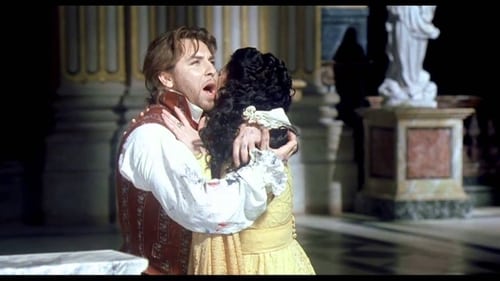
Baron Scarpia
Benoit Jacquot's acclaimed 2002 film of Puccini's opera stars Angela Gheorghiu in the title role, with Roberto Alagna, Ruggero Raimondi and the Chorus and Orchestra of the Royal Opera House, Covent Garden, under Antonio Pappano.

Bellisle
A young talented painter dreams of glory. A man promises it in exchange for his talent and his soul.

Scarpia
Contemporary Rome is the setting for this unique and highly innovative version of Puccini's Tosca, performed in the Roman locations--and at the same times of day--as Puccini had written into his score. Thus the action opens in the beautiful 16th century church of Sant'Andrea della Valle at noon, where Cavaradossi (Domingo) is painting a portrait, moves to the Farnese Palace that evening where Tosca (Malfitano) dramatically stabs the lustful Scarpia (Raimondi) and finally in the battlements of Castel Sant'Angelo at dawn the following day where the last moments of the drama are completed.

Boris Godounov
A possible impostor torments a newly crowned medieval czar who may have ordered the real successor's death.

Scarpia
This live version of Puccini s superbly dramatic opera was recorded in Rome in the exact locations and at the precise times of day as Puccini had written into his score. The action opens in Rome's beautiful 16th-century church of Sant Andrea della Valle, where Cavaradossi (Plácido Domingo) is innocently painting, moves to the Farnese Palace where Tosca (Catherine Malfitano) dramatically stabs the lustful Scarpia (Ruggero Raimondi), and finally to the battlements of the Castle Sant Angelo at dawn the following day where Cavaradossi is cruelly killed, and Tosca takes her own life.

From the "James Levine: Celebrating 40 Years at the Met" DVD box set. Jean-Pierre Ponnelle’s landmark production of Mozart’s most human comedy provides the perfect setting for this superb cast under James Levine’s ebullient leadership. The philandering and arrogant Count Almaviva (Thomas Allen) is no match for his wily servant Figaro (Ruggero Raimondi), whose soon-to-be-wife Susanna (Kathleen Battle) is as manipulative as she is charming. Add in one beautiful, disillusioned Countess (Carol Vaness) and one irrepressible, testosterone-laden teenage boy (Cherubino, played by Federica von Stade), and it’s no wonder some critics say this is the perfect opera.

Méphistophélès
Mexican tenor Francisco Araiza stars as Faust, and Erich Binder conducts the Vienna State Opera and Chorus in this 1985 production of Charles Gounod's five-act opera based on Goethe's poem. In an epic tale of good versus evil, Faust sells his soul to the devil (played by Italian bass Ruggero Raimondi) and tries to save Marguerite (Slovakian soprano Gabriela Benackova) from an eternity in hell. Walton Gronroos and Alfred Sramek co-star.
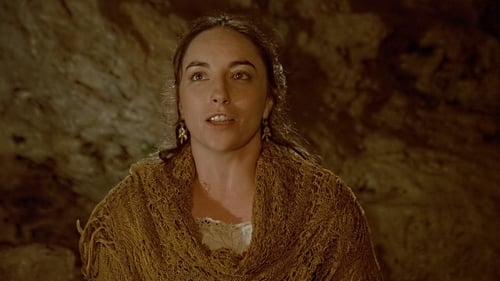
Escamillo
A film version of the famous Bizet opera, where a soldier (Don Jose) falls in love with a beautiful factory worker (Carmen), but she does not reciprocate his feelings.

Don Ruy Gómez de Silva
Verdi's early masterpiece is based on a Victor Hugo play with a complicated plot concerning a young woman and the three men vying for her affections—her elderly uncle, a king destined to become Holy Roman Emperor, and a bandit who is actually an overthrown nobleman. Though there is plenty of action arising from the various passions and grudges scattered among these characters, the opera is best appreciated as a feast of beautiful and dramatic Italianate singing. With virtuosic roles for a quartet of principals, the opera delivers one feat of heroic vocalism after another.

Count Michel Forbek
In this whimsical fable, Resnais deftly interweaves three story lines: the creation of an early-20th-century utopia; romantic high jinks at a school conference; and a fantasy sparked by F/X pioneer Georges Méliès.

Himself
In celebration of its 100th anniversary in 1983, the Metropolitan Opera hosts a four-hour performance uniting some of the world's most spellbinding opera singers and conductors. The event includes a ballet from Samson et Dalila and boasts incredible classical performances from Kathleen Battle, Plácido Domingo, Jose Carerras, Leonard Bernstein, Marilyn Horne, Leona Mitchell, Luciano Pavarotti and many more.

Party Guest
The sexual and social dysfunctional behaviour of the corporate elite are further aggravated when a naive married woman becomes the obsession of two wealthy suitors.

Bass
Live performance of Verdi's Missa da Requiem at the Edinburgh Festival in 1982. An all-star quartet of soloists under the baton of Claudio Abbado, recorded in high definition audio.
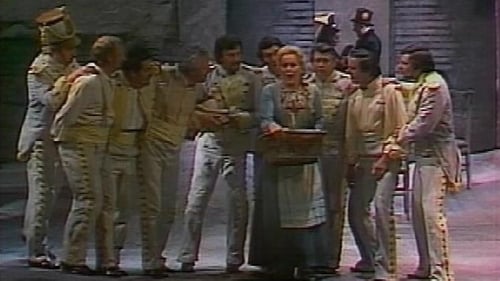
Escamillo
Carmen, presented in a production at the French Opera House.
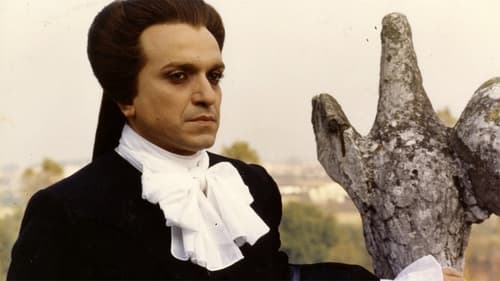
Don Giovanni
Screen adapatation of Mozart's greatest opera. Don Giovanni, the infamous womanizer, makes one conquest after another until the ghost of Donna Anna's father, the Commendatore, (whom Giovanni killed) makes his appearance. He offers Giovanni one last chance to repent for his multitudinious improprieties. He will not change his ways So, he is sucked down into hell by evil spirits. High drama, hysterical comedy, magnificent music!

Thomas Becket
Assassinio nella cattedrale (Murder in the Cathedral) is an opera in two acts and an intermezzo by the Italian composer Ildebrando Pizzetti. The libretto is an adaptation by the composer of an Italian translation of T.S. Eliot's play Murder in the Cathedral. The opera was first performed at La Scala, Milan on 1 March 1958.













